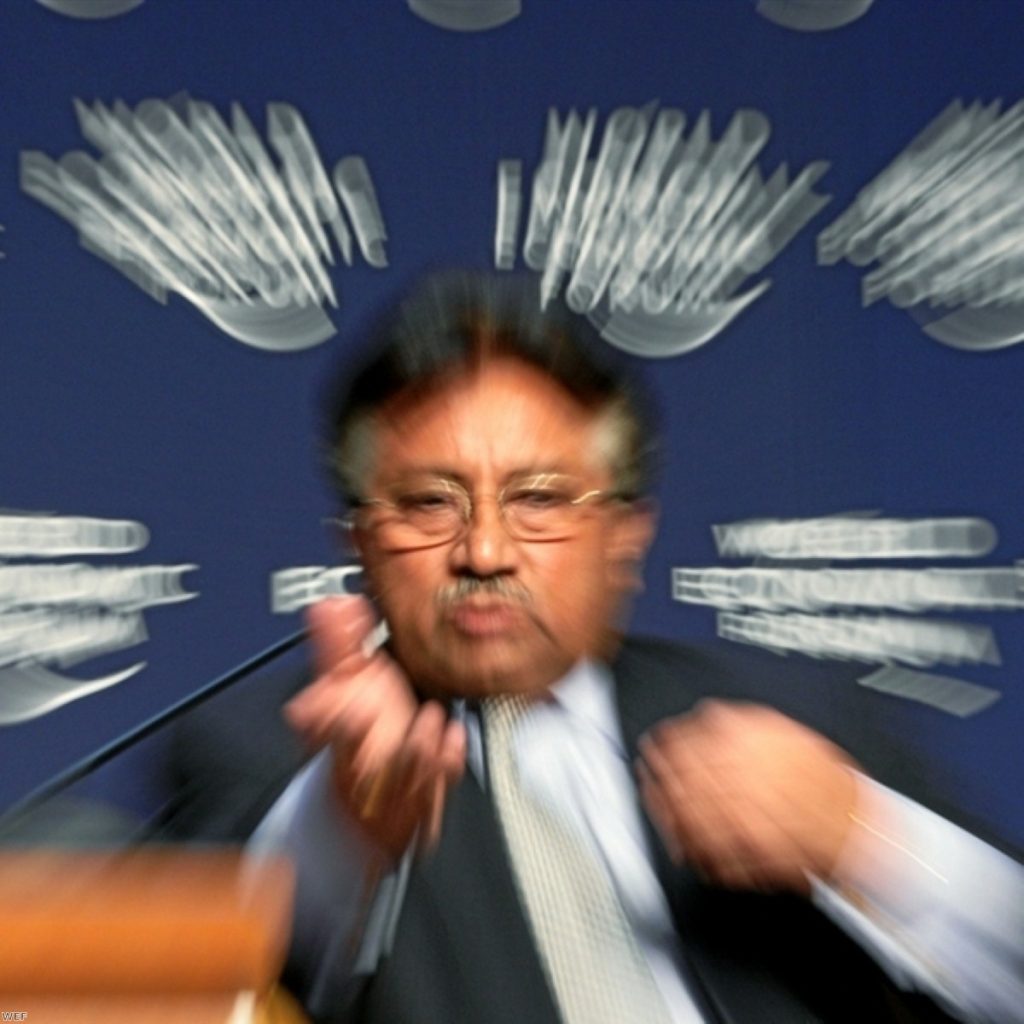Sketch: An unreconstructed autocrat
Much of our time is spent worrying about the authoritarian leanings of our leaders. Things are so much simpler on the unstable subcontinent.
The insight into the mind of ex-military autocrat Pervez Musharraf provided by London thinktank Chatham House this afternoon is a case in point.
Mr Musharraf, or General (retired) Musharraf as he prefers but is almost never known, facilitated this process by appearing in person himself. On more than one occasion he slipped into what must be described as some sort of jovial dictator syndrome.


“I am a civilian, I am not a military man. I cannot take over or anything,” he said at one stage, shrugging his shoulders in avuncular fashion. “Even if I think something is wrong in Pakistan!”
As he had just spent the last 45 minutes explaining at length the many things he thinks are wrong with Pakistan, we were left to assume this was more than a mere rhetorical flourish.
In fact General (retired, probably for ever) Musharraf displayed alarming tendencies towards split personalities in this session. Just as he was able to jump from authoritarian dictator to concerned man of the people, leaping from political concept to political concept, so he appears to have widened his speaking voice styles on the after-coup circuit.
We were all a little surprised when he informed us that Pakistan in 2010 is “the most happening place in the world”. It turns out “there’s never a dull moment” in Pakistan. This is not because Pakistan is full of fun and games, as it sadly turned out. The “happenings” in Pakistan tend to be of the terrorist kind.
Musharraf inferred and nudge-nudge-wink-winked his way through the speech about his fervent yearnings for power, even suggesting at one point he might like to return to the presidency.
He reminded all present that the idea of “political deals” with the Taliban, the latest fad to hit the fashion-conscious international diplomacy scene, had been backed by him for years and years, even before 9/11.
And he gave a strikingly brazen explanation of why military governments tend to work better than democratic governments. Perhaps this was because they have “better organisational capabilities”, or even a “better trained mind for doing things”. Democratic governments are the way forward, of course – but the rationale behind his logic was a little chilling.
So was his answer to a question about the correct balance of power between bureaucrats, political parties and the military.
“The person who talks more sense calls the shots,” he said instantly. “Of course the government must call the shots.”
An interesting mix-up, there: under Musharraf’s regime commentators tended to observe the person and the government were one and the same.

